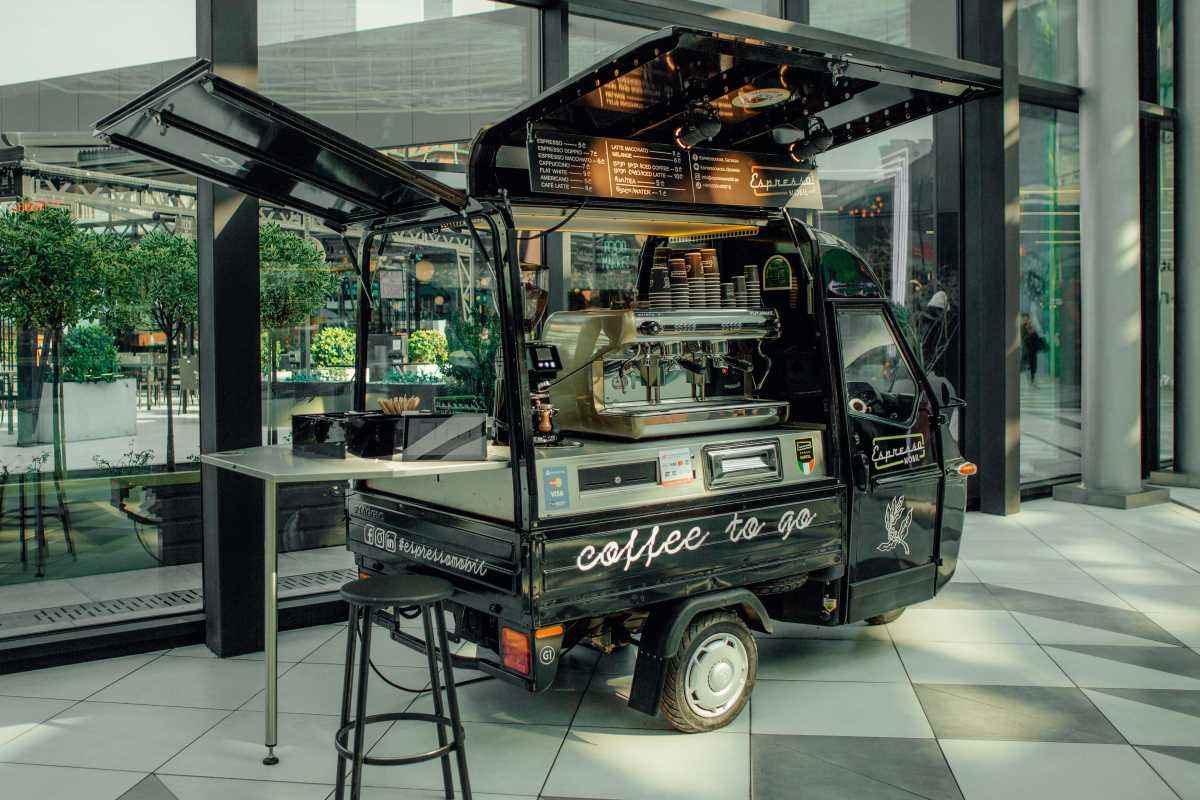Diving into the mobile coffee cart business promises an exhilarating journey, providing the freedom to serve beloved coffee creations to people wherever they gather. As lifestyles become increasingly fast-paced, entrepreneurs are seizing the opportunity to thrive by delivering exceptional coffee without the substantial costs associated with maintaining a brick-and-mortar café. This innovative approach not only caters to the demand for convenience but also allows business owners to reach a diverse customer base across different locales. Whether parked at bustling events or nestled in cozy neighborhoods, mobile coffee carts have emerged as a popular and profitable alternative to traditional coffee shops.
Diving into this business requires more than just a passion for coffee. Understanding the legal landscape is crucial to ensuring your venture operates smoothly and avoids potential pitfalls. Let’s walk through the essential legal requirements and practical steps to get your mobile coffee cart up and running.
Understanding Legal Requirements
Before you launch your mobile coffee cart, you must navigate various legal requirements to operate legally and efficiently. Here are the key considerations:
- Permits: Obtain a mobile vendor permit from your local city or county government. This permit allows you to operate your cart in designated areas.
- Business License: Register your business with the appropriate state and local authorities to secure a business license.
- Health Regulations: Comply with health department standards by ensuring your cart meets sanitation and food safety requirements. You may need to pass regular inspections.
- Insurance: Acquire liability insurance to protect your business against potential claims related to accidents or health issues.
- Zoning Laws: Familiarize yourself with local zoning laws to understand where you can legally operate your coffee cart without infringing on residential or commercial areas.
Choosing a Business Structure
Selecting the right business structure is a foundational decision that impacts your taxes, liability, and operational flexibility. Common structures include sole proprietorships, partnerships, limited liability companies (LLCs), and corporations.
A sole proprietorship is simple and cost-effective but offers no personal liability protection. Partnerships involve two or more people sharing ownership, which can complicate decision-making. An LLC provides a balance, offering liability protection without the complexity of a corporation. Corporations are more complex and suitable for larger businesses seeking to raise capital through stocks.
Finding the Right Location
Your mobile coffee cart’s success heavily relies on its location. High foot traffic areas such as business districts, parks, and event venues serve as ideal spots to attract customers. Understanding and implementing local SEO techniques can significantly enhance your visibility online, directing more foot traffic to your physical locations.
Consider rotating your spots based on the time of day and local events. For instance, position your cart near office complexes during morning rush hours or at parks on weekends to maximize your sales opportunities. Regularly assess and adapt your locations to ensure you remain accessible to your target market.
Equipment and Suppliers
Equipping your mobile coffee cart with the right tools is critical for smooth operations. Here’s a list of essential equipment you’ll need:
- Espresso machine and grinder
- Refrigeration unit for milk and other perishables
- Portable water supply and filtration system
- POS system for handling transactions
- Storage shelves and cabinets
- Generator or reliable power source
When selecting suppliers, prioritize those who provide high-quality ingredients and reliable service. Building strong relationships with your suppliers leads to better pricing, consistent quality, and timely deliveries, ensuring your cart always operates smoothly.
Marketing Your Coffee Cart
Effective marketing is key to attracting and retaining customers for your mobile coffee cart. Use social media platforms like Instagram and Facebook to showcase your offerings, announce your locations, and engage with your community. Posting regular updates and responding to customer feedback builds a loyal following.
Besides online marketing, word-of-mouth remains a powerful tool. Encourage satisfied customers to spread the word and consider offering promotions or loyalty programs to incentivize repeat business. Participating in local events and collaborating with nearby businesses can also increase your visibility and attract new customers.
Complying with Local Laws
Staying compliant with local laws is essential to avoid fines and ensure the longevity of your business. This includes adhering to the aforementioned permits and health regulations. Regularly update yourself on any changes in local ordinances that might affect your operations.
For more detailed information on legal requirements, consult with a local business attorney or reach out to your city’s business licensing office. They can provide guidance tailored to your specific situation, helping you navigate the complexities of running a mobile food business.
 (Image via
(Image via





